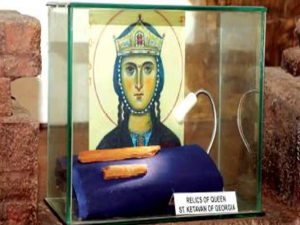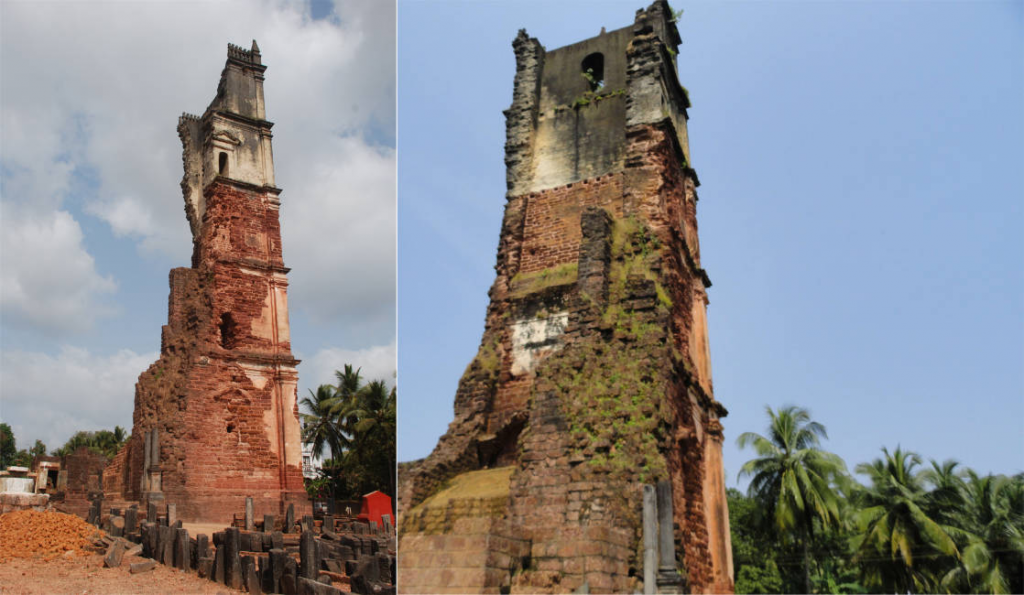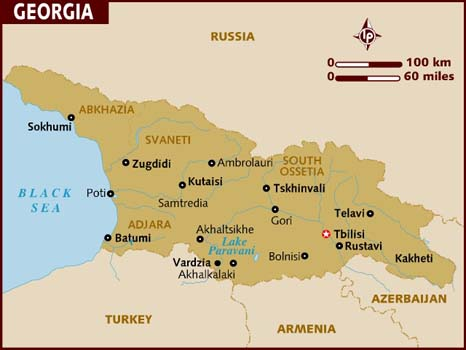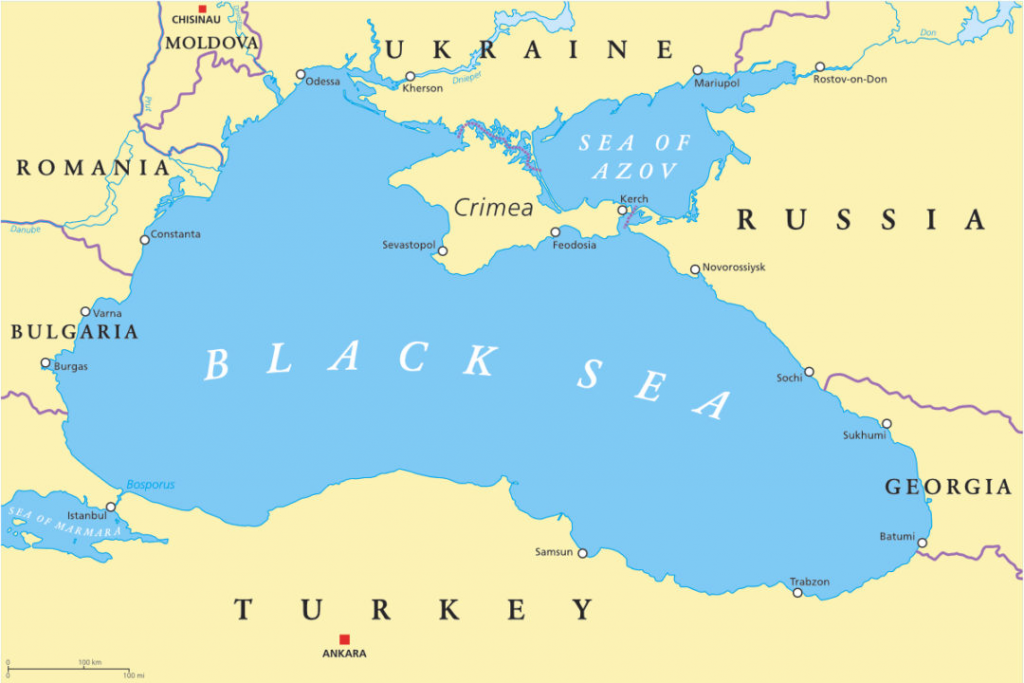St. Queen Ketevan
Why in News?
- The External Affairs Minister handed over to Georgia the holy relics of 17th century Georgian Queen St. Ketevan nearly 16 years after they were found in Goa.
Who is St. Queen Ketevan?

- St. Queen Ketevan was a 17th century Georgian Queen.
- From Kakheti, a kingdom in eastern Georgia, she was tortured and killed in 1624 in Shiraz for not converting to Islam during the rule of the Safavid dynasty.
- Portuguese missionaries (Augustinian monks) were said to have carried the relics to Goa in 1627 in St. Augustine Complex.
- Revered as a martyr, her relics remained lost till 2005 as the St. Augustine Church collapsed in 1842.
- A DNA analysis by the CSIR-Centre for Cellular and Molecular Biology, Hyderabad, confirmed their authenticity in 2013.
- Considering the persistent request from the Georgian side for the permanent transfer of the relics and also taking into account the historical, religious and spiritual sentiments attached to the St. Queen Ketevan by the Georgian people, India decided to gift one part of the relics to Georgia.
Additional Information
Church of St. Augustine

- Church of St. Augustine is a ruined church complex located in Old Goa.
- Its construction was started in 1597 and was completed around 1602.
- The church was abandoned in 1835 after the Portuguese government of Goa began evicting many religious orders in Goa under its new repressive policies
- In 1986, UNESCO declared the ruins to be a World Heritage Site.
- It is also the site of the archaeological discovery of the remains of Queen Ketevan.
Related Information
Georgia

- Georgia is a strategically important country situated at the intersection of Eastern Europe and Western Asia.
- It is a part of the Caucasus region, bounded to the west by the Black Sea, to the north and east by Russia, to the south by Turkey and Armenia, and to the southeast by Azerbaijan.
- Georgia is one of the oldest wine-producing countries in the world; local winemaking traditions are entwined with Georgia’s national identity, and have been classified by UNESCO as part of the world’s Intangible Cultural Heritage.
- India was among the first countries to officially recognize Georgia, doing so on 26 December 1991.
Black sea

- The Black Sea, also known as the Euxine Sea.
- This marginal sea of the Atlantic Ocean, located between Eastern Europe and Western Asia.
- The Bosporus, also known as the Strait of Istanbul connects the Black Sea with the Sea of Marmara, and, by extension via the Dardanelles, the Aegean and Mediterranean seas, and by the Kerch Strait, the sea of Azov.
- Countries bordering the Black Sea are:: Turkey, Bulgaria, Ukraine, Russia, Georgia, Romania
- Mnemonics to remember- T & BURGeR(Turkey, Bulgaria, Ukraine, Russia, Georgia, Romania)
Portugal colonialism in India- important events
- In 1498, Vasco-da-Gama makes reaches Calicut where he is received by the Zamorin
- The first Portuguese fort is established at Cochin ( 1503)
- In 1505, a Governor was appointed on a three-year term- Francisco de Almeida (first Portuguese governor) who was ordered to build a fortress at Kilwa, Anjadiva, Cannanore and Cochin and invested with full power to wage war, conclude treaties and regulate commerce.
- In 1509, a combined fleet of Egyptian, Arab and Zamorin fleet is destroyed by the Portuguese at the Battle of Diu by Almeida
- Goa was captured from the Adilshahi Sultan of Bijapur by Alfonso Albuquerque in 1510. Albuquerque also maintained friendly relations with the Vijayanagara Empire.
- Albuquerque’s immediate successor, Nuno da Cunha (1529-38), captured Mombasa on the African coast, established settlements at San Thome near Madras and at Hughli in Bengal. He transferred the capital from Cochin to Goa in 1530. He acquired Diu and Bassein from Bahadur Shah of Gujarat (1534).
- The Dutch establish a monopoly in the spice trade after dislodging the Portuguese in 1596
- The Portuguese hands over Bombay to the English in 1611
- In 1632, the Mughal Emperor, Shah Jahan completely destroyed the Portuguese settlement at Hugli.
- The Portuguese lose all their forts to the Dutch on the Malabar Coast in 1663
- Goa is liberated in 1961 when the Indian army launches a military operation(Operation Vijay)
Reference:
Subscribe
Login
0 Comments
